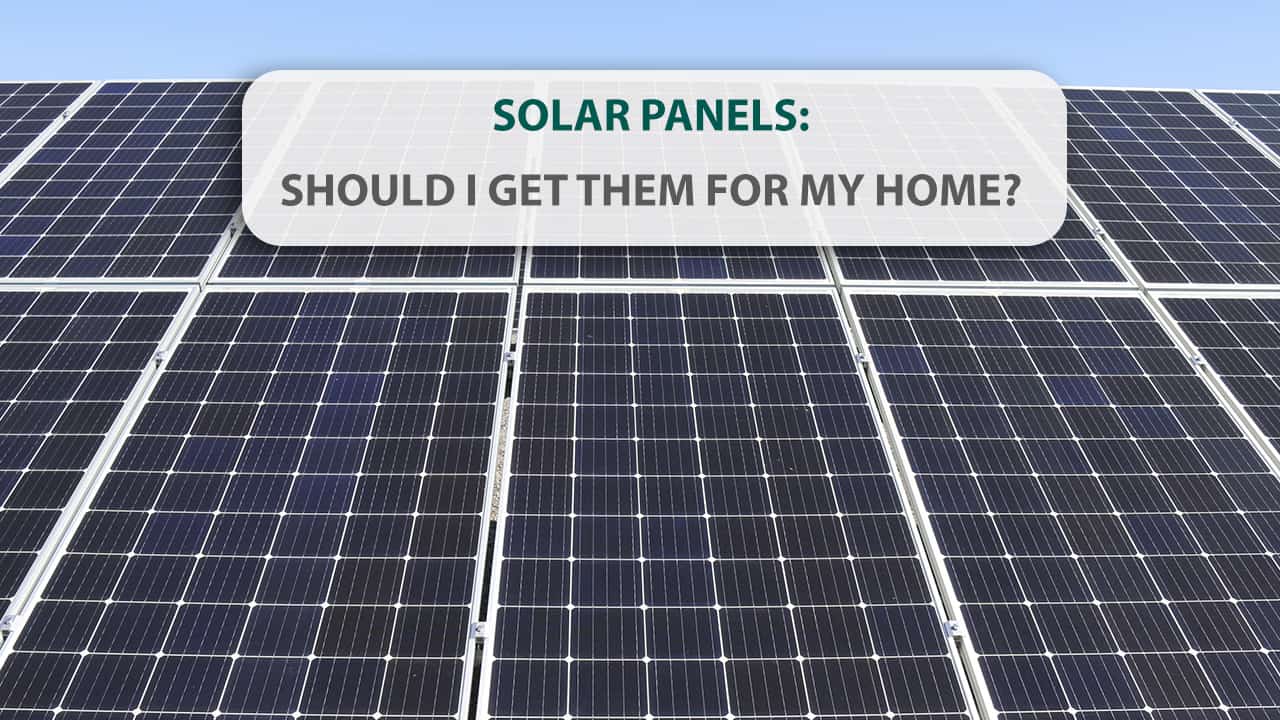SOLAR PANELS: Should I get them for my home?

Solar panels – a proven way to consume electricity more sustainably, and cheaper too. But is it all it’s cracked up to be? Well, an increasing number of people don’t think so.
What are solar panels?
Solar panels are devices installed on roofs to convert sunlight into electricity, which you can then use to power your home.
How do they work? It’s relatively simple: The sun’s light generates direct current (DC), where an inverter then converts the DC into 240V alternating current (AC), which is then used to power your home.
Solar panels can be a great way to reduce, or even remove, the need to use electricity from the grid and you’ll only need to use electricity from the grid when you’ve used all of the energy supplied by your solar panels. Better yet, if your solar panels generate enough electricity, you can sell that excess electricity back into the grid for a profit.
How much do solar panels cost?
The cost of solar panels can vary dramatically depending on the size of the system and the number of panels required to power your home. The system size is measured in kiloWatts (KW), and the most commonly-installed system in Australia is a 6.6kW system.
A system of this size typically costs anywhere between $6,000 – $8,500, mainly depending on the quality of the panels. However, you can buy a small 1.5kW system for as little as $2,500, or a large 10kW system in the range of $12,000.
However, don’t let these numbers scare you too much, as there are Government rebates available to help cover some of the costs, and solar panels typically pay themselves off in around 6-10 years, but in some instances it can be even quicker!
How much money will solar power save me?
A standard 6.6kW system can, on average, save you between $300 – $500 quarterly on the electricity bill, but if you are smart with your consumption, your savings might be even higher.
It is wise to run most of your electrical appliances, such as your dishwasher, washing machine, etc during the day, as this is the time when your system will be converting the most power. The more electricity you use at night (when your system isn’t converting), the smaller your savings will be.
You can, however, install a solar battery in addition to your solar panels. This will store any excess energy your solar system generates throughout the day, which will allow you to run appliances at night without relying as heavily on electricity from the grid. Whilst the battery is a sizable upfront investment, if you generally use appliances at night, it may be beneficial in the long run.
Considerations to make
- Calculate your home’s current energy consumption and determine the size of the system you require – this will help determine a rough payback period.
- Confirm your roof faces the right direction – roof orientation is a major factor when considering solar panels. A solar installer will assess this for you, however it’s generally accepted that north-facing is the best orientation for maximum usage.
- Ensure that there are no trees, buildings, etc casting shade over the panels, this will prevent them from operating at full capacity.
- Decide on the right solar inverter.
- Think about whether you need a battery.
- Think about the possibility of matching the solar panels to your home’s style.
- Ensure your panels meet the standard requirements.
Still unsure?
The team at Daniel Finn Builder understands solar panels and their pros and cons. Don’t hesitate to contact us, we can answer all of your questions.
